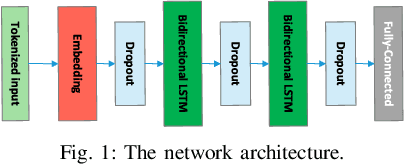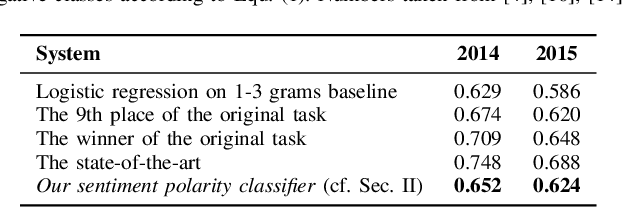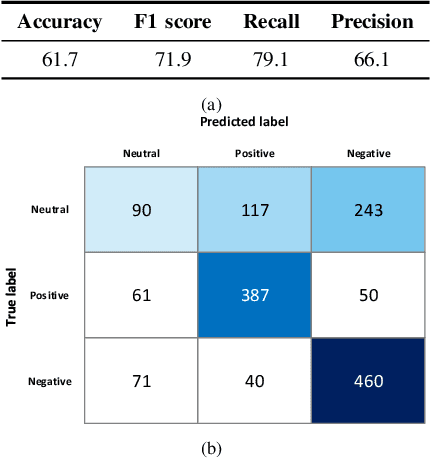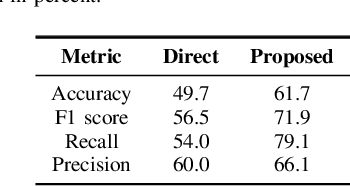Philipp Heinrich
Key Point Analysis via Contrastive Learning and Extractive Argument Summarization
Sep 30, 2021



Abstract:Key point analysis is the task of extracting a set of concise and high-level statements from a given collection of arguments, representing the gist of these arguments. This paper presents our proposed approach to the Key Point Analysis shared task, collocated with the 8th Workshop on Argument Mining. The approach integrates two complementary components. One component employs contrastive learning via a siamese neural network for matching arguments to key points; the other is a graph-based extractive summarization model for generating key points. In both automatic and manual evaluation, our approach was ranked best among all submissions to the shared task.
How Will Your Tweet Be Received? Predicting the Sentiment Polarity of Tweet Replies
Apr 21, 2021



Abstract:Twitter sentiment analysis, which often focuses on predicting the polarity of tweets, has attracted increasing attention over the last years, in particular with the rise of deep learning (DL). In this paper, we propose a new task: predicting the predominant sentiment among (first-order) replies to a given tweet. Therefore, we created RETWEET, a large dataset of tweets and replies manually annotated with sentiment labels. As a strong baseline, we propose a two-stage DL-based method: first, we create automatically labeled training data by applying a standard sentiment classifier to tweet replies and aggregating its predictions for each original tweet; our rationale is that individual errors made by the classifier are likely to cancel out in the aggregation step. Second, we use the automatically labeled data for supervised training of a neural network to predict reply sentiment from the original tweets. The resulting classifier is evaluated on the new RETWEET dataset, showing promising results, especially considering that it has been trained without any manually labeled data. Both the dataset and the baseline implementation are publicly available.
* Published in 2021 IEEE 15th International Conference on Semantic Computing (ICSC)
 Add to Chrome
Add to Chrome Add to Firefox
Add to Firefox Add to Edge
Add to Edge